Öhman, Johan, and Louise Sund. "A Didactic Model of Sustainability Commitment". MDPI. March 11, 2021. https://www.mdpi.com/... (Contributed by Gregory Autin).
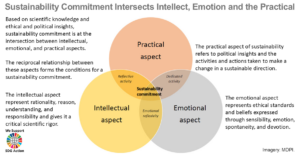 For adoption of 2030 Agenda and the Sustainable Development Goals, education must be reoriented and implemented towards commitment to sustainable development. The environmental and sustainability education (ESE) model suggests that a sound commitment is found at the intersection of the intellectual, emotional, and practical aspects of sustainability. It is argued that the intellectual aspect is essential for applying scientific rigor and a critical stance, that emotions are vital for people to become dedicated, and that skills are necessary to carry out appropriate and urgent actions for change for us to play an active role in encouraging a sustainable transformation of society. Commitment to sustainability occurs through the interplay of intellectual, emotional, and practical factors.
For adoption of 2030 Agenda and the Sustainable Development Goals, education must be reoriented and implemented towards commitment to sustainable development. The environmental and sustainability education (ESE) model suggests that a sound commitment is found at the intersection of the intellectual, emotional, and practical aspects of sustainability. It is argued that the intellectual aspect is essential for applying scientific rigor and a critical stance, that emotions are vital for people to become dedicated, and that skills are necessary to carry out appropriate and urgent actions for change for us to play an active role in encouraging a sustainable transformation of society. Commitment to sustainability occurs through the interplay of intellectual, emotional, and practical factors.
Posted on 29/11/24
Recent Abstracts
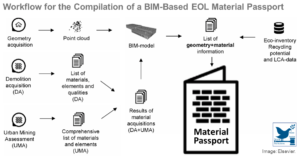
Material Passports for the End-of-Life Stage of Buildings: Challenges and Potentials
Global consumption of non-renewable resources is increasing and shortages of primary raw materials and reduction of space for final waste disposal are raising urgent issues for our communities. The unsustainable use of resources is resulting in strategies for maximizing recycling rates and minimizing environmental imp ...
Posted on 05/09/22
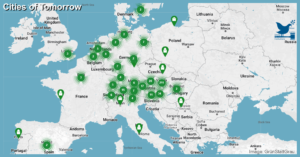
GrünStattGrau
The platform is an interface between network partners from the public sector, science and research, and community stakeholders that shares best practices in developing sustainable communities. It inspires and advances the deployment of technologies, competencies, and services and furthers the affordability of tools an ...
Posted on 02/09/22
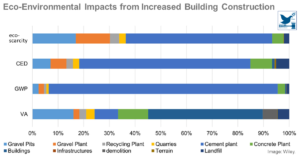
Regional Circular Economy of Building Materials: Environmental and Economic Assessment Combining Material Flow Analysis, Input-Output Analyses, and Life Cycle Assessment
Especially in terms of resource availability, spatial planning, or economic performance, the constraints for development policies in regions can differ widely. A model-based assessment on a regional scale enables policy decisions to consider sustainability and offers significant advantages over a mere product-level ap ...
Posted on 31/08/22
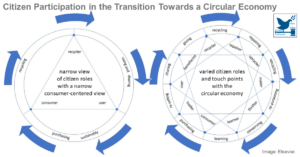
A Framework for Building Efficient Environmental Permitting Processes
Public participation can be an effective instrument in facilitating the building permitting process. A collaborative permitting process must enable stakeholders to voice concerns and openly discuss the permit. Although public participation generally lengthens the process, it provides opportunities for public comment ...
Posted on 26/08/22
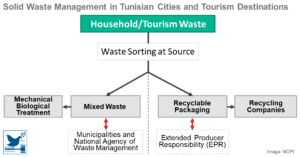
Conceptualizing Core Aspects on Circular Economy in Cities
Circular economy policy and practices are implemented at the local level to form circular communities. Circularity at the urban level calls for great effort and innovation to successfully transition from the linear economy to circular cities. However, local governments and policymakers are uncertain about how to deve ...
Posted on 24/08/22
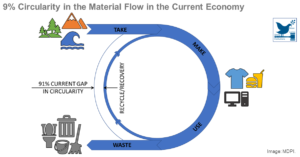
3 Ways We Can Collaborate Better for a Circular Economy
Collaboration between all stakeholders is essential for a successful circular economy. Where stakeholder collaboration is difficult to achieve and there is little cross-sector collaboration, circular innovations are costly and scarcely adapted. To make meaningful progress in circularity, we must have a collaborative ...
Posted on 22/08/22
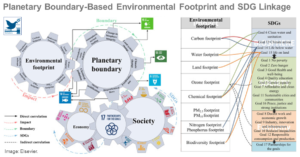
Intersections Between the Planetary Boundaries and the Circular Economy
Circular economy (CE) is an umbrella concept that encapsulates and connects separate knowledge areas and experiences in terms of resource efficiency and reduced environmental impacts. Proof of CE’s capacity to create the conditions required for meeting human needs within planetary boundaries (PBs) is still lacking. P ...
Posted on 19/08/22
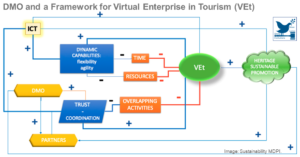
Destination Management and Sustainable Development through the Common Lens of the Commons
Local destination management organization (DMO) involves a large participatory process for strategic planning and monitoring combined with decentralized operational planning and management. This paper illustrates problems and obstacles for the creation of a local DMO promoting a tourism destination’s sustainable devel ...
Posted on 17/08/22
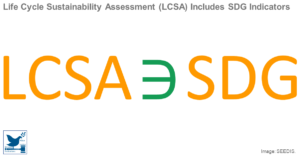
Life Cycle Sustainability Assessment—A Survey Based Potential Future Development for Implementation and Interpretation
Life cycle sustainability assessment (LCSA) provides valuable support for stakeholders and interested third parties regarding sustainability assessments, environmental footprints, emission optimization, and corporate communication. The state-of-the-art LCSA framework extends the scope of life cycle assessment (LCA) by ...
Posted on 12/08/22
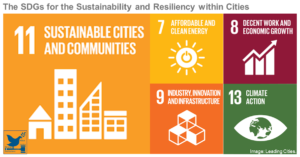
The AURA Guide
Urban development and construction have a significant impact on all sustainable development indicators in a city. The City of Montpellier adopted a proactive urban policy in the AURA urban planning guide based on social, environmental and economic development management principles aligned with sustainable development ...
Posted on 10/08/22
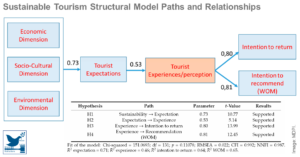
Characteristic of Green Event Practices in MICE Tourism: A Systematic Literature Review
MICE is the fastest-growing segment in hospitality and a significant contributor to the global tourism industry. Increased awareness of green practices among MICE event stakeholders has changed event organizers' perception of sustainability. This paper reviews green practices in meeting, incentive, convention, and exh ...
Posted on 08/08/22
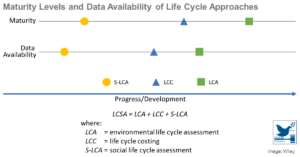
Methodological Framework to Find Links between Life Cycle Sustainability Assessment Categories and the UN Sustainable Development Goals Based on Literature
Life cycle sustainability assessment (LCSA) is suggested to be the best method to assess the environmental, economic, and social impacts of products along their life cycle in the context of the Sustainable Development Goals (SDGs) supporting them. It links LCSA categories and measures the sustainability performance of ...
Posted on 05/08/22
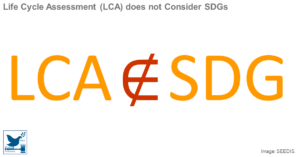
Life Cycle Assessment Support to Environmental Ambitions of EU Policies and the Sustainable Development Goals
The European Green Deal and the Sustainable Development Goals (SDGs) call for a holistic approach to production and consumption along value chains and the use of life cycle assessment (LCA) to support policy design and monitoring. This paper evaluates LCA in supporting EU SDG policies and the Planetary Boundaries (PBs ...
Posted on 02/08/22

Steering the Circular Economy: A New Role for Adam Smith’s Invisible Hand
Adam Smith’s seminal work in economics suggested that the morality of a society guides the “invisible hand” that steers free trade in a positive direction. Smith recognized the society-economy nexus and equilibrium in his economic theory as crucial to society’s socioeconomic progress. The circular economy relates to ...
Posted on 29/07/22
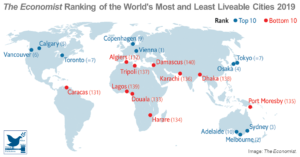
These Are the World’s Most Liveable Cities
City liveability is important on various levels and impacts the daily lives of billions of people. Over 80% of global GDP is generated in cities, while consuming nearly 80% of the world's energy and producing more than 60% of its greenhouse gas (GHG) emissions. Therefore, building liveable, future-ready and sustainable ...
Posted on 27/07/22

